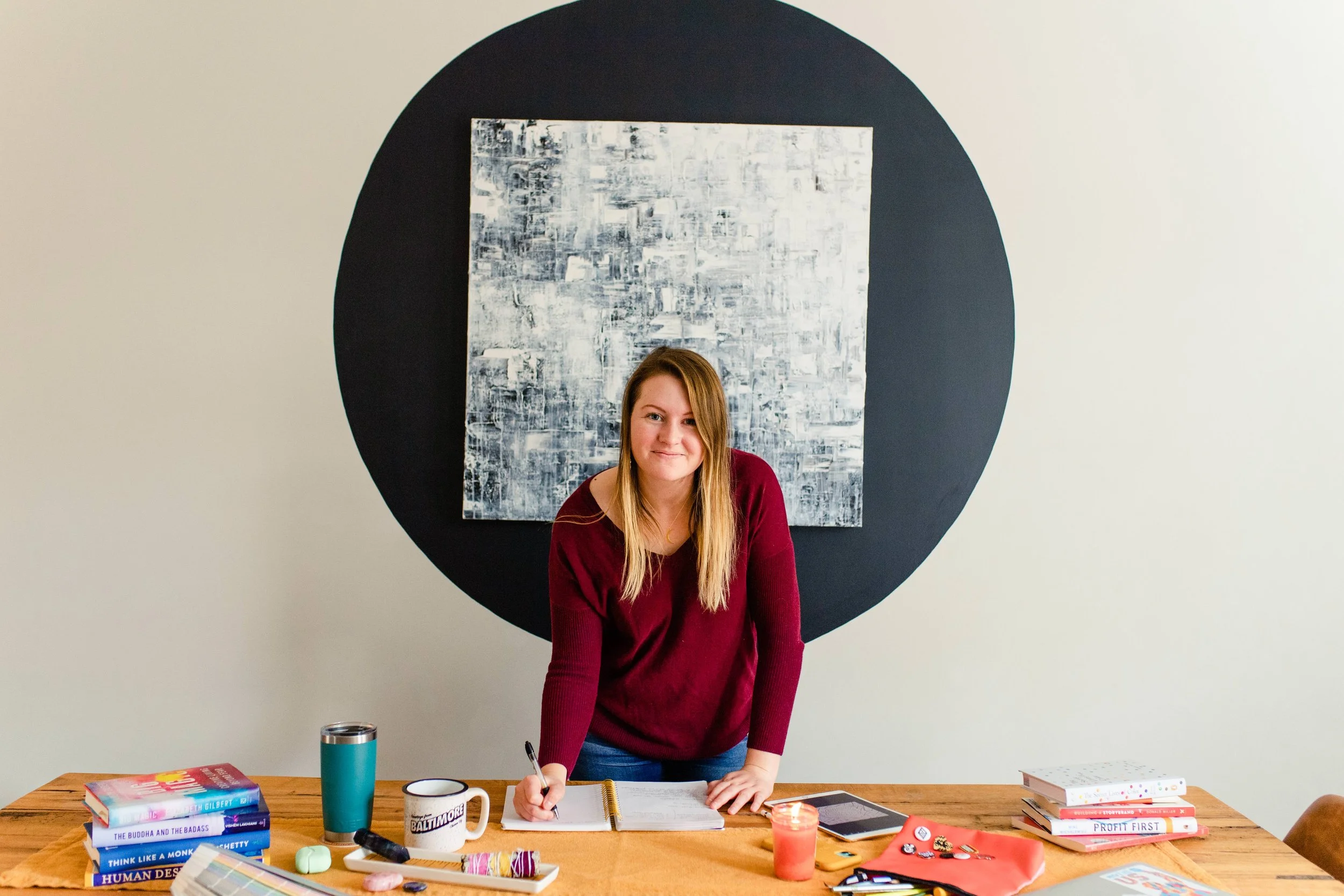The Life-Changing Magic of Journaling
June 1, 2022Is your brain filled with endless thoughts rattling around constantly? From your daily to-do list to existential questions like “Am I doing any of this right?”
That was me too.
As I peeled back layers of myself on my healing journey, all of the thoughts became too loud to stay inside.
That’s when I discovered journaling. Except, my way of doing it didn’t look like the pixel-perfect images you see on Instagram.
It was very sporadic in the beginning. Random notes on my phone. A few lines in a Word doc. A bulleted list in some random sketchbook.
Over time, it became a habit. One that stretched me a lot.
Then I got used to the idea of tuning into what was going on in my head and getting it out so I could analyze it. And like kneading dough, the more I committed to it – whether I was afraid of what I’d uncover or not – the easier and more exciting it became.
What do you need to release?
I started writing in my journal to document how I was feeling, to see what came up for me when I turned to a blank page, and to get the racing thoughts out of my head so I could move through them.
When I read my journal from 2020, I can see how different of a person I am. Reflecting on what I wrote when I was in a different mindset allows me to appreciate my growth. Plus, it’s fun to be able to look back (especially if you’re a sentimental person like me!).
A theme I noticed from those journals? I released a lot over the years.
Outdated patternsWhen I read through old notes to myself, there’s almost always a pattern that comes up month after month, year after year. When something stands out to me, I can decide whether it’s something I need to tackle or get support with.
It’s much easier to notice patterns looking back than it is in the moment. That’s why I love documenting in this way.
Unexpressed emotionsWriting out how I handled situations I struggled with on paper helps me notice how I express my emotions. Especially the ones that make me go “Ooh, I don’t like that I acted that way.”
The aspects that make you squirm a bit in your seat? It’s all part of your shadow – the sides of you that you wish you didn’t have.
Being able to look back at how you felt during specific moments in time and accept that you showed up the best way you knew how to with the tools you had at your disposal is one magical way to heal your shadow.
You’re a perfectly imperfect human. You’re going to fuck up, but you don’t have to hold onto feelings that keep you small. The same goes for behaviors.
add an image description
Actions that don’t serve meI used to be a reactive person. My behavior was instantaneous and emotional. When I started writing down my reaction to situations, I noticed how often I let my emotions overtake me.
Over time, it got easier to stay level-headed enough to respond because I reacted in my journal instead! And while I can sit here and say I’m getting better at responding with emotional maturity, I still have days when I lash out.
The difference between past Jess and now? I learned how to comfort myself, something I haven’t always been able to do.
CodependencyWorking through my problems on paper has also helped me move away from codependency. It’s taught me I can rely on myself and that it’s safe to tap into my intuition. I have all of the answers I need.
What I don’t have though? Control over everything.
The need to be in controlIf you’re having some shitty moments, ask yourself if it’s because you’re trying to control things you simply cannot. This need for control comes up when you’re living in the past or thinking too much about the future.
The more you let go – through journaling to release the hold your emotions have on you – the more you relax enough to soak in the present moment. Trust that this is all part of your journey.
What’s holding you back?
A block I used to have with journaling was the need for it to look a certain way. I want to share how my own process has evolved so you know you get to make it your own.
For a long time, my journal was a bunch of lists – things I’m grateful for, something that lit me up today, here’s what I want to move past, etc.
Then it shifted to writing out how I’m feeling and why or “Here’s a problem I’m facing and how I’m thinking about solving it” with quick bullets.
Now I do a little bit of both! I also love to use oracle spreads I find on Pinterest as prompts.
How you choose to process and document your growth through journaling is unique to you.
How can you celebrate yourself this week?
add image description
In fact, journaling can even be a form of celebration! You can use it to reflect on lessons you learned or to feel good about how you solved a problem you were struggling with.
The idea is to celebrate yourself every single time you sit down to write. Whether it’s daily, monthly, or sporadically (like it was for me in the beginning!). Those small moments add up to big breakthroughs.
Where are you putting more pressure on yourself than necessary?
Over time, journaling has helped me heal and embrace more of my badass self. I want the same for you!
Journaling is a form of self-care – beyond the aesthetic bubble baths and face masks – that helps you feel more confident in who you are and your ability to navigate tough situations.So here’s my message to you: Ditch the perfection!
It doesn’t have to take a lot of time or look a certain way. It can be a sentence, 3 bullets, or a voice note on your phone.
Relish in the fact that journaling is messy. You’re giving yourself a chance to process your thoughts and feelings. And to me? That’s the highest form of self-love there is.
If you feel ready to put this into action, here's a quick and dirty oracle or tarot spread I do weekly. Use each card as a prompt to uncover the magic you’re capable of bringing to different aspects of your life:
P.S. The headings in this blog are additional journal prompts you can use to document, process, and reflect. Happy healing!


